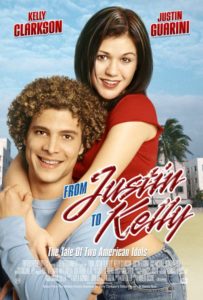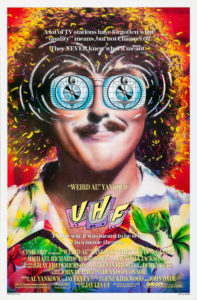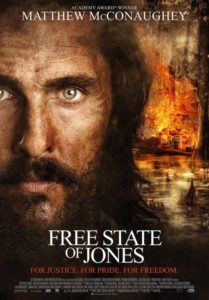Spoiler Warning: This review goes into plot details and specifics of the of the film. If you haven’t seen this film and want to, proceed with caution.
A surprisingly strong argument can be made that the most influential filmmaker to come out of the 90s was Michael Bay. No, not Quentin Tarantino or Kevin Smith, but Michael Bay. When his name comes up in the opening credits, a viewer immediately knows what to expect: explosions, rapid-fire editing, 360 degree camera pans, explosions, racist stereotypes as comedy, creepily sexual framing of women, explosions, a distrust of the government while worshipping the military, and explosions. Since the release of his first film, Bad Boys, the Got Milk mastermind has carved out a very specific style (or “Bayhem” if you will) for himself that has proven fruitful, at least financially. Numerous studio films have aped parts of his style for themselves, leading to a loud, sometimes exhilarating, often headache-inducing brand of action movie. As Daniel Bettridge wrote in The Guardian, “Whether it’s the improbably successful Fast And The Furious films… or the never-ending procession of superhero blockbusters, the current trend of over-long, over-hyped and over-the-top film fodder rarely strays from the trail that Bay has blazed.”
In the Bad Boys retrospective in the A.V. Club feature A History of Violence, Tom Breihan gave Bay the descriptor of an “auteur hack,” a concise way of stating that while Bay’s films are undeniably his own, with every shot, line, and scene carefully controlled and produced in line with his style, they are still artless crap. A popular comparison of his filmmaking is to that of a frat boy mindset, with his commercial and music video influence that dominates the senses. I don’t think that’s entirely fair. Michael Bay isn’t a frat boy; he’s a film school geek who walked past Greek housing once and witnessed all the guys hanging out in tight t-shirts, taking shots, talking about babes, being manly, loud and chaotic. In his desperation to understand the cool people he decided that this example was the epitome of that scene, and he has been trying to mimic his idols ever since.
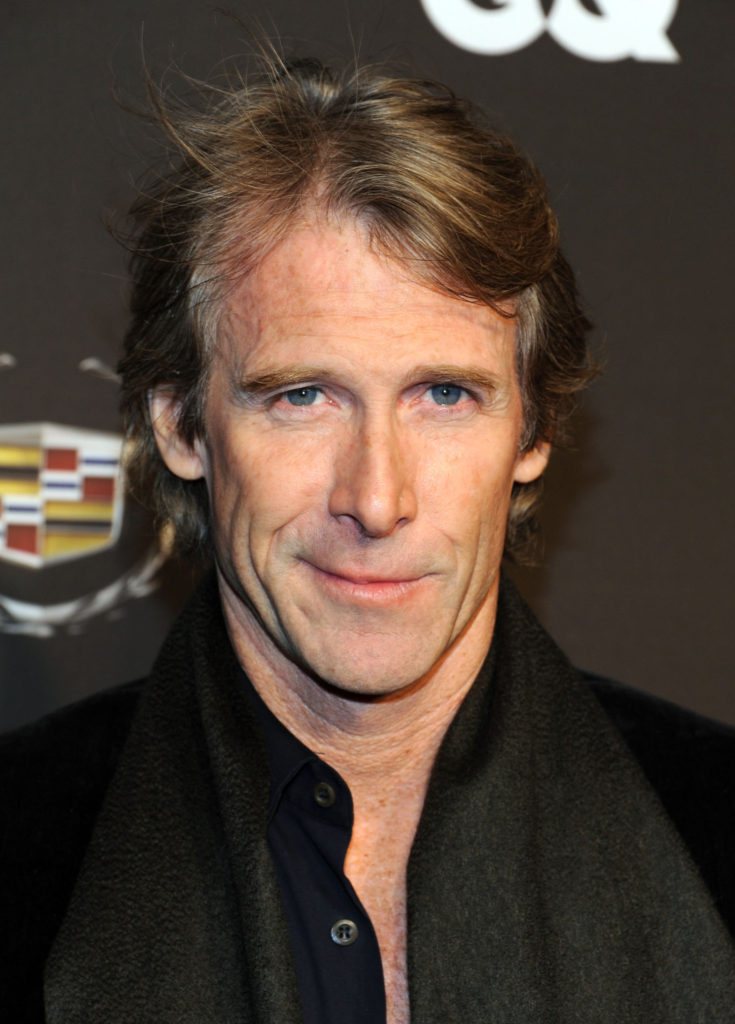
As you can probably tell by now, I’m not exactly a fan of Bay, though I admit to having enjoyed several of his films, including two that I legitimately consider good (The Rock and Pain & Gain if you’re interested), but I do find his particular brand of filmmaking interesting. He gets plenty of hate, but you can’t deny that he at least somewhat understands the language of cinema and how to subvert it. His movies captured the zeitgeist of blockbuster cinema, and for a while, defined summer entertainment. Bay knew what audiences, especially teenagers, would pay to see, and he sold his product to them without shame, and I can’t blame him for that.
This brings us to today’s entry in Summer Blockbusters That Weren’t, The Island. Released in the Summer of 2005, in between Bay’s simultaneously most celebrated and despised magnum opuses Bad Boys II and Transformers, The Island is the odd man out of his golden age. It’s arguably his most forgotten film and among his lowest grossing. In a career where even his worst films managed to get butts in seats, Bay somehow had a miss, despite making his film largely the same way as before, with lots of action, quick editing, and attractive up-and-coming stars for the poster (Ewan McGregor and Scarlett Johansson this time).
He even had more of a plot this time around, having to do with the future, clones, morality, and what defines humanity. In the year 2019 (HA!) Lincoln Six Echo (McGregor, the same year he did another little movie about malfunctioning clones) and Jordan Two Delta (Johansson) live in what is basically a high-tech penal colony after…something happened making the world uninhabitable. They and thousands of others only have memories starting from their arrival at the colony, and basically have the minds of children. It’s an ok place, if a bit restrictive and tyrannical, and is run by Dr. Merrick (Sean Bean, so of course he dies). But it’s nothing compared to the Island, the last habitable place on Earth, and it’s got puppies everywhere, constant sexy-times, and Coke instead of Pepsi, it’s awesome! There are frequently random lotteries to get there, and everyone wants in. Lincoln, however, senses something is off, and discovers a horrifying secret: the lottery winners aren’t going to the Island, they’re being killed and harvested for organs and newborn babies! He grabs Jordan and makes a break for it, and when they make it out it turns out the world is fine, society is intact, and they’re all clones paid for by rich people as “insurance” in case they get sick or injured. With this information, they plan to tell the world about what’s going on and liberate their fellow clones.
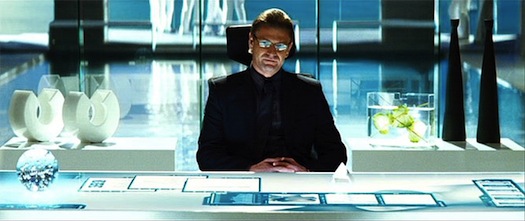
If that’s a story that sounds familiar, there’s a reason for that. The movie obviously takes some inspiration from Logan’s Run, but there’s a more blatant inspiration. When The Island is remembered, it tends to be for something more amusing: A big, old, fat lawsuit. Yes, there was an otherwise obscure low-budget sci-fi movie from 1979 called Parts: The Clonus Horror that has a borderline identical plot. How identical? The creator of Clonus wasn’t even the first to notice the similarities. Premiere Magazine even called the first hour a “scene-for-scene remake.” There was a settlement, supposedly in the millions, and while I’ve never seen Clonus, it sounds like they had a case. I can only speculate as to who’s to blame for this, though since the film started as a spec script by Caspian Treadwell-Owen and Bay has said that mainly acts 2 and 3 were rewritten by Alex Kurtzman and Roberto Orci (“The Good Enough Duo” as I call them), my money’s on the original writer.
Maybe this familiarity bled out to the public, as if they could tell it wasn’t as original of a plot as it seemed. Marketing didn’t help either. I must’ve seen the trailer for this film five times leading up to its release, and I couldn’t figure out what it was supposed to be about or why I should care. The poster was even worse, with just standard profiles of the actors to sell it. Perhaps the worst part was the dull title, which evokes a tropical Robinson Crusoe vibe rather than a sci-fi thriller. It seems I was not alone in my indifference, which is a shame because, copyright infringement aside, it’s not bad.
The beginning of The Island works best as it shows the director at his most restrained. In establishing the world the characters think they live in, the first act takes place entirely inside the colony and you get a fair idea of the layout and geography of the area. A lot of time is spent showing how the day to day life works in this place. Characters are shown performing tasks, eating, and having recreational fun. Also shown are invasive procedures and how there’s no such thing as a personal life here. Throughout the opening, there is a real sense of uneasiness contrasting with how bright everything appears. Lincoln and Jordan are both smart, likeable and easy to root for. There is also a decent group of supporting characters who are wonder if something is being kept secret from them.
When the action makes its way outside, the story still takes its time showing the leads adjusting to their surroundings. They spend a surprising amount of time wandering the desert, only getting help from Steve Buscemi’s engineer at a bar. You get to see them experience the world for the first time. You see the range of emotions they feel knowing they’ve been lied to their whole lives, and it’s played for straight drama rather than comedy.
Honestly, the main thing holding the movie back, other than the probable plagiarism, is Michael Bay himself. Almost as if on cue he gives into his commercial instincts that were muted before, with huge chases through a train station and the streets of Downtown LA. Bay tries to take advantage of the futuristic setting, with flying cars and motorcycles liberally sprinkled throughout the scenery to be used or destroyed at will. There’s running, speeding, and plenty of destruction, but the problem is in coherence.
These sequences only start because the special ops teams sent in, who are supposed to be keeping their client’s business quiet and secret, start shooting up populated areas at the slightest provocation, allowing Lincoln and Jordan to escape. The action is composed entirely of shots that are filmed and cut with little thought to escalating tension or continuity. The action starts at 10 and stays there. The great Lindsay Ellis, in her series on Bay’s Transformers movies The Whole Plate, brought up the phenomenon of how hard it is to remember what happens in those movies. The Island proves that this problem started earlier. I just watched this movie last night and the only thing I remember about this chase is that they somehow ended up on top of Team Rocket Headquarters.

The product placement that got so out of hand in Transformers is here as well. The first vehicle the leads see is a speeding motorbike. Once it passes them, Johansson asks what it was. McGregor goes up to the center of the camera as if in a Super Bowl commercial and responds “I don’t know, but I want one.” It doesn’t get better from there. Highlights include loving shots of Nokia phones and Michelob Light, but my favorite is back at the colony where there is a giant Xbox logo. Why would these clones, who are basically slaves who have no knowledge of the outside world, need to know what an Xbox is? Did Bean’s character consider it too cruel to deprive them of the wonders of Halo?
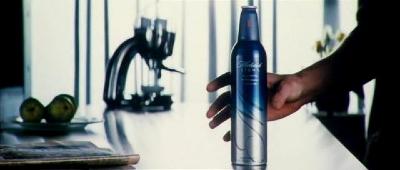
There are other directoral flourishes that are hard to ignore. There’s teal and orange color correction or the fact that the male clones come in all shapes and body types while the women are all models. If you wanted to be charitable you could argue that it’s a statement about how society will only allow physically attractive women to be successful, but that’s a stretch all things considered. A plot point about the company’s business model (called the “Unaffordable Care Act” by my wife) is that their clients think the clones are non-sentient vegetables laying around until they’re needed. When asked why they don’t just do it that way, Bean offers some forced human spirit sentimentality about how organs fail without life and emotion. I’m no doctor, and biology was never my strongest subject, but I’m pretty sure that makes no sense. It would’ve made more sense to say that they have some other use for the clones, but I digress.
Lincoln and Jordan eventually meet Lincoln’s doppelganger, Tom, and while the film doesn’t go particularly deep into the moral implications of this, it’s fun seeing McGregor play dual roles and the best chase scene in the movie happens because of him. Tom sells Lincoln out, but Jordan is smart enough to see it coming. Tom and Lincoln are chased by the lead mercenary (the always welcome Djimon Hounsou) and his team. It ends with some quick thinking from Lincoln, allowing him to take the original’s place. The action is more coherent here, and there’s another example of our lead’s intelligence. When Lincoln and Jordan fall for each other after this, it feels believable because you’ve seen how well they interact. You root for them to get a happy ending, especially when they decide they can’t leave the others behind.

I mentioned before that the second half of the script was the most rewritten. It’s obvious with the climax, because it feels like an afterthought. Everything ends in pretty typical big dumb action movie style: The colony is blown up, Sean Bean is killed, Hounsou makes a heel-face turn, and all the clones are free. It’s fun and it ends on a happy note. Just don’t think too hard or you’ll start thinking about what happens next to the clones Lincoln and Jordan just freed.
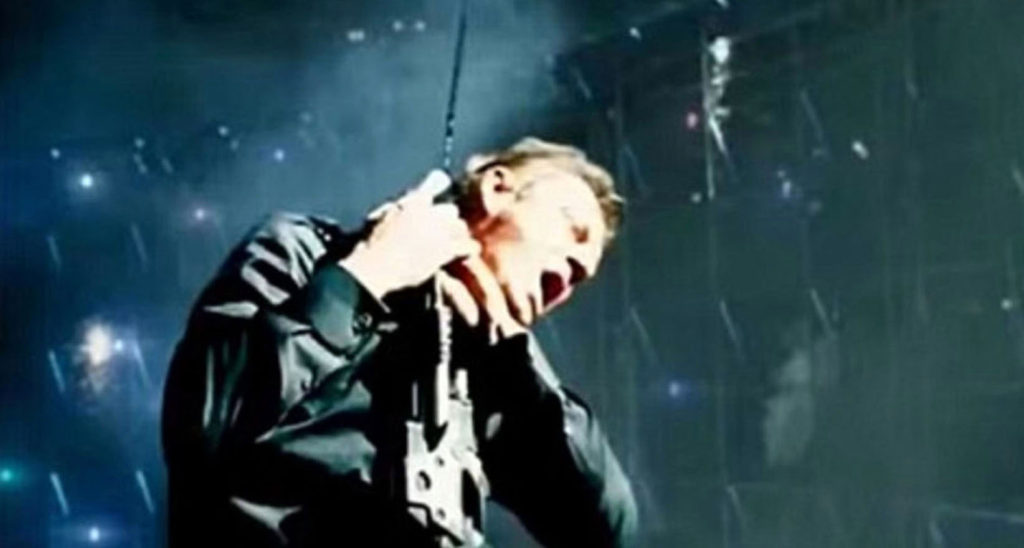
And that’s a shame, because it’s hard not to think about what a different filmmaker might’ve done here. The film had a reported $126 million budget, and it did not need it. There is a trend in studio films where huge budgets are given to films that do not need them, creating unreasonable expectations for success. The idea may not have been original, but true originality is in execution. There were some cerebral directions this could’ve gone in, but Bay wasn’t interested in that, at least not really. Instead, it’s a typical Michael Bay action movie, but a decent Michael Bay action movie.
Wait, Lincoln…freeing slaves…ARE YOU KIDDING ME?
GRADE: B-
There are worse films that were more successful, and this will do if you need something on a lazy afternoon. Michael Bay is gonna Michael Bay, and his worst tendencies are still on display. He restrains himself a bit, but refuses to truly mature his style or subvert himself. Still, if you can move past his more annoying traits, you’ll probably enjoy yourself. I realize that the first three films I chose for Summer Blockbusters That Weren’t have a similar theme in that their directors have all been given some form of auteur license. Perhaps this shows a pattern that less collaborative films are less successful in the summer. Next time, I will be doing a film by a director who did not have that license.


